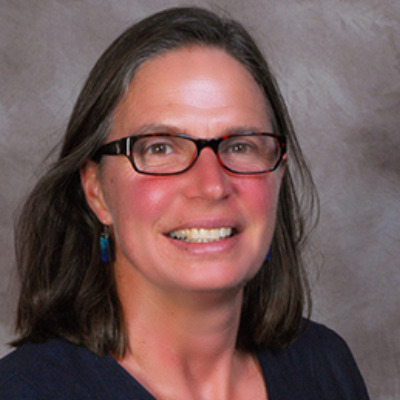Leveraging Rural Community and Academic Institutional Partnerships to Improve Healthcare Access and Health Literacy
The intended learning objectives for attendees are to:
1. Explain “Strategic Doing” as a leadership model for building collaborations
2. Explore strategies for the development and implementation of events aimed at enhancing rural healthcare access and health literacy
3. Discuss an approach to engage students with IPECP
4. Discuss evaluation methodologies
Rural Americans face health disparities (e.g., food deserts, environmental barriers to physical activity, and access to quality health care) which negatively impact their physical and mental well-being. Rural community members are also more likely to die from common chronic diseases than their urban counterparts.
The Indiana University (IU) Center for Rural Engagement partnered with the IU Interprofessional Practice and Education Center, IU faculty and students, and Washington County Indiana to utilize the process of “Strategic Doing.” The appreciative framing questions, “What if Washington County became a state model for health outcomes improvement? and “What would that look like?” guided the team in identifying and leveraging collective assets and networks to develop and implement a wellness fair that enhanced healthcare access and health literacy.
The rural wellness fair provided an interprofessional education and collaborative practice (IPECP) opportunity for IU professional and pre-professional students and their IU faculty mentors. This IPECP initiative was designed to address community identified healthcare needs and improve health literacy in rural Indiana communities while providing experiences for students to learn “about, from, and with” other professions and rural community members. The students were central to delivering diagnostic and screening tests, providing health education, and engaging with residents throughout fourteen specialty stations.
The wellness fair model was well matched for the development and implementation of the IPECP model in a rural community. Students participated in a systems approach, working within and across professions and sectors to recognize and address rural health issues, suggest prevention and treatment approaches, and offer education and resources to enhance health literacy and advocacy.
During this seminar, attendees will learn how the Washington County Wellness Fair was developed, implemented, and evaluated. Additionally, plans for sustainment and future growth into other rural areas through interagency collaborative partnerships will be discussed. The facilitators will assist attendees in exploring the process for developing an IPECP initiative with their communities and discuss ways for capturing the student interprofessional experience.
Attendees will leave the seminar session with an understanding of approaches to complex collaborations that provide for agile leadership and networks, leveraging unique assets, and building sustainable partnerships among agencies, academic institutions, and rural communities.
The seminar will be presented/outlined as follows:
1. Introduce the community and academic institutional partners (5 minutes)
2. Describe the “Strategic Doing” process that facilitated development and implementation of the wellness fair (5 minutes)
3. Describe the design of the wellness fair (5 minutes)
4. Discuss students, faculty, and community partnerships for an IPECP event (10 minutes)
5. Provide participant, student, faculty, and community experience data (10 minutes)
6. Summary and Q&A (10 minutes)
Large group engagement; Small group discussions will occur in break-out rooms with facilitators; Large group debriefs
In support of improving patient care, this activity is planned and implemented by The National Center for Interprofessional Practice and Education Office of Interprofessional Continuing Professional Development (OICPD). The OICPD is accredited by the Accreditation Council for Continuing Medical Education (ACCME), the Accreditation Council for Pharmacy Education (ACPE), and the American Nurses Credentialing Center (ANCC) to provide continuing education for the healthcare team.
The National Center OICPD is approved by the Board of Certification, Inc. to provide continuing education to Athletic Trainers (ATs). This program is eligible for Category A hours/CEUs. ATs should claim only those hours actually spent in the educational program.
This activity was planned by and for the healthcare team, and learners will receive Interprofessional Continuing Education (IPCE) credit for learning and change.


Physicians: The National Center for Interprofessional Practice and Education designates this live activity for AMA PRA Category 1 Credits™. Physicians should only claim credit commensurate with their participation.
Physician Assistants: The American Academy of Physician Assistants (AAPA) accepts credit from organizations accredited by the ACCME.
Nurses: Participants will be awarded contact hours of credit for attendance at this workshop.
Nurse Practitioners: The American Academy of Nurse Practitioners Certification Program (AANPCP) accepts credit from organizations accredited by the ACCME and ANCC.
Pharmacists and Pharmacy Technicians: This activity is approved for contact hours.
Athletic Trainers: This program is eligible for Category A hours/CEUs. ATs should claim only those hours actually spent in the educational program.
Social Workers: As a Jointly Accredited Organization, the National Center is approved to offer social work continuing education by the Association of Social Work Boards (ASWB) Approved Continuing Education (ACE) program. Organizations, not individual courses, are approved under this program. State and provincial regulatory boards have the final authority to determine whether an individual course may be accepted for continuing education credit. The National Center maintains responsibility for this course. Social workers completing this course receive continuing education credits.
IPCE: This activity was planned by and for the healthcare team, and learners will receive Interprofessional Continuing Education (IPCE) credits for learning and change.







